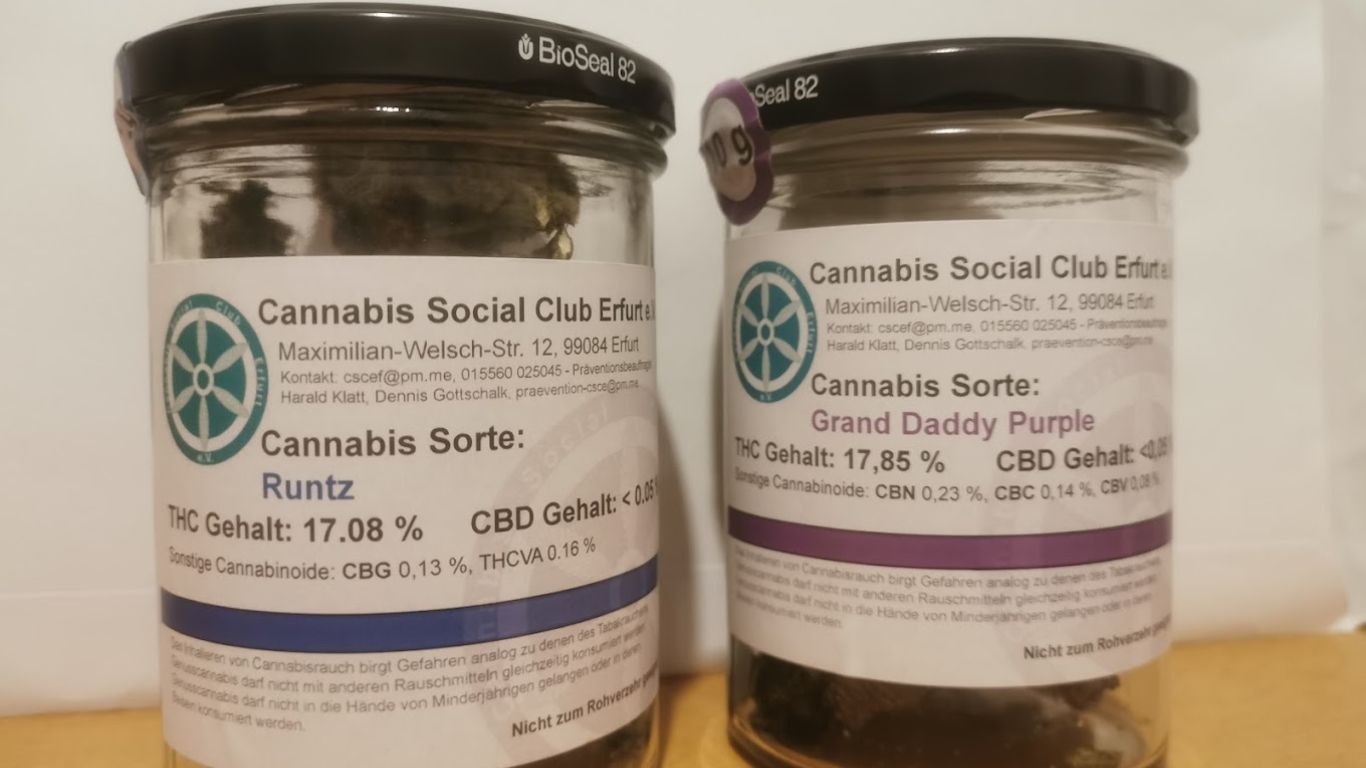
Cannabis holds promise as an aid to women’s health. While there are challenges related to a lack of long-term research data and the fact that the market is emerging, applications specific to women’s health are becoming more common.
In some cases, product development has stemmed directly from personal experience.
“I have a chronic pelvic pain condition,” says Shauna Levy, Founder and CEO of Madge and Mercer, which makes cannabis self-care products designed exclusively for women. “I battled for eight years with the health system, looking for the root cause and trying to manage pain without side effects. I tried everything from magnet therapy to hydromorphone.”
I also noticed that there were many women with health issues who were doing everything right—eating and living healthily, exercising, meditation—but still needed help, and were afraid of the stigma of cannabis.
Shauna Levy, Madge and Mercer
Levy wasn’t a regular cannabis user. However, after several attempts at determining dosage, she found a cannabis oil that helped her manage the pain.
“This is about physical pain management, but also the anxiety attached to chronic pain,” she says. “I also noticed that there were many women with health issues who were doing everything right—eating and living healthily, exercising, meditation—but still needed help, and were afraid of the stigma of cannabis.”
Stigma is an important issue. Products specific to women’s health and the customer base aren’t always well suited to the retail environment, with darkened windows, packaging restrictions, and budtenders who aren’t familiar with the issues.
“The biggest challenge for me is that it’s not natural for a woman to walk into her corner cannabis store to talk about hot flashes and vaginal dryness,” says Levy. “With some exceptions, it is still very much a bro culture. We align well with some independent, especially female-owned stores, and try to go big with them. Not surprisingly, our online sales are also a lot higher than with other cannabis brands.”
Levy’s approach is to win one customer at a time, showing up where women are, such as yoga, fitness, and meditation events, which also provide a good opportunity for education.
An undeveloped market
In the US alone, women’s health is estimated to reach a market size of over US$58 billion (C$77.5 billion) by 2030. Canada, at roughly 10 percent of the US market, could feasibly reach C$7.75 billion in that time frame.
However, women’s health is a largely undeveloped market in the Canadian cannabis industry. In the recreational market, companies have been focusing primarily on THC levels. By comparison, most health products are CBD-based, with low levels of THC.
“Customers looking for THC in recreational products now have many options available, while many of women’s health and wellness needs remain unmet,” says Sarah Roberts from Cicatrix Labs in Kelowna, BC, which makes suppositories and topicals. “While none of our products are gender exclusive, we have made an effort to provide products that address some common issues that affect women, including our line of suppositories.”
Cicatrix Labs’ suppositories can be used rectally or vaginally, with many female customers using them to help with pelvic issues.
“Menstrual pain is incredibly common and is severe to debilitating in 5% to 10% of pre-menopausal women,” says Roberts. “Treatment options for menstrual pain, endometriosis, and ovarian cysts are limited, and some over-the-counter options increase the risk of bleeding. This has led to cannabis suppositories becoming a popular option.”
Pelvic conditions can be brutally painful. Given the seriousness of the conditions and the size of the market, one would expect that demand would be high. But it can be a challenge to sell into an area that is under-researched, with market participants—including professionals within medical cannabis—often in need of education.
“Our medical professionals work with our marketing team to advocate women’s health as much as possible,” says Arash Taghvai, M.D., Director of Clinical Affairs and Medical Science Liaison with Apollo Health, which offers physical and remote clinic services across Canada. “We also provide educational sessions to medical professionals and patients heralding our observations of success in the clinic.”
The most commonly reported symptoms associated with perimenopause and menopause, according to a Canadian study referenced by Apollo Health, are trouble sleeping, anxiety, difficulty concentrating, irritability, and muscle and joint aches.
There are also women’s health concerns for conditions that affect both sexes but are more common with women. Taghvai notes that these are often overlooked.
“It is important to note that there are many complex neurological conditions that are higher in incidence in women, such as fibromyalgia, multiple sclerosis, and migraines,” he says.
More a marathon than a sprint
The market could get a considerable boost as more research is done. Many experts, such as Dr. Heather Hirsch, head of the Menopause and Midlife Clinic at Harvard-affiliated Brigham and Women’s Hospital, believe that because cannabis affects the prefrontal cortex, there is good reason to believe it helps with the sleep and mood changes associated with perimenopause and menopause.
“It’s a waiting game,” says Levy from Madge and Mercer. “We hope to be available on several medical platforms soon, which would be good for products that aren’t appropriate for the recreational market.”
Preclinical research in women’s health issues is promising as it suggests that estrogen may modulate anxiety through the endocannabinoid system. Similar research indicates that cannabinoid-based therapies can induce vasorelaxation, thus potentially helping with hot flashes and night sweats.
Unfortunately, the model for care delivery in Canada’s medical market can create challenges.
“In the medical market, the system of access authorization instead of a prescription or product/dose recommendation creates an instant disconnect,” says Roberts from Cicatrix. “This system is generally separate from the rest of the patient’s care team of physicians, pharmacists and caregivers, which can lead to product selection and dosing errors, drug interactions, and unneeded side effects.”
More research could streamline the system with support from respected experts like Dr. Hirsch and a change in Health Canada’s rules. It would almost certainly result in more women’s health products, but this is more a marathon than a sprint.
“Health Canada, which had as its initial goal the eradication of the illicit market, is starting to look at the wellness side,” says Levy from Madge and Mercer. “But we are still a long way out. Legislation for cannabis health products—to make our products available in pharmacies—is the end-game for us.”
Expanding the retail experience to include other environments that sell women’s health products should help legitimize the products in the eyes of many consumers.
“I talk to a lot of women who are fairly conservative and are simply uncomfortable to go into stores where they are asked for ID at the entrance and have to interact with young men,” says Levy. “It clearly isn’t a Sephora or Whole Foods retail experience.”
Moving into new retail environments may be essential for future success. As it stands, there are intense battles taking place for shelf space in traditional cannabis stores, with LPs accused of providing inducements to retailers.
“We are very lean, but we don’t have the budget to compete with large LPs,” says Levy. “The CBD category is still quite small compared to the high THC market, and there just isn’t room on the shelves when these other products demand space.”
Cicatrix Labs has reached out to two education partners to help it expand its market presence, 36Eight Technologies and ElionMED.
“36Eight Technologies allows seamless integration of cannabis therapy into a consumer’s pharmaceutical therapy,” says Roberts. “ElionMED helps physicians to connect patients to evidence-based information and products appropriate for their condition, and streamlines access to medical cannabis.”
In the example of 36Eight Technologies, pharmacists combine evidence-based recommendations, education, monitoring and adherence tools to ensure the patient has the best possible outcome. This is similar to the approach taken by Dr. Taghvai at Apollo Health, which has physicians and specialists who focus on women’s health.
“Most start with CBD on a trial basis,” he says. “Our approach is fine-tuned and adjusted based on the patient’s response, just like any other medication.”











